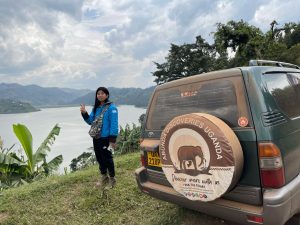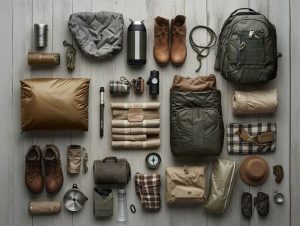Uganda, known as the “Pearl of Africa,” has increasingly gained popularity as a tourist destinations due to its stunning landscapes, wildlife diversity, and cultural richness. For most travelers, Uganda is a safe country to visit, especially in major cities like Kampala and Entebbe, as well as popular tourist destinations such as Bwindi Impenetrable Forest and Murchison Falls National Park. How Safe Is Uganda for Tourists in 2025?
However, safety conditions vary by region and can change due to political tensions, cross-border conflicts, or isolated criminal activity. While tourism-related crime is relatively low compared to some neighboring countries, travelers should still exercise caution and stay informed of any changes. Government travel advisories, such as those issued by the UK Foreign Office or the U.S. State Department, often recommend avoiding certain regions, particularly near the borders with the Democratic Republic of Congo (DRC) and South Sudan.
In 2025, Uganda remains mostly stable and welcoming to tourists, but vigilance, informed planning, and use of reputable tour operators are essential for a safe experience.
What Are the Common Safety Concerns for Tourists in Uganda?
Travelers to Uganda may encounter several safety challenges, most of which are preventable with adequate preparation. The most common concern is petty crime, including pickpocketing, phone snatching, and minor scams. These incidents tend to occur in busy urban centers like Kampala, particularly in crowded areas such as markets, bus stations, and nightlife districts.
Another concern is road safety. Uganda’s roads, especially outside the capital, may be poorly maintained, lacking proper signage and lighting. Drivers sometimes disregard traffic rules, and public transport options such as matatus (minibuses) and boda-bodas (motorcycle taxis) are often considered unsafe due to overcrowding and reckless driving.
There have also been isolated reports of armed robberies and occasional unrest in certain rural or border areas. Although these are rare and generally do not target foreign tourists, it’s advisable to avoid traveling at night and to use licensed and trusted transport services.
What Precautions Should Tourists Take While Traveling in Uganda?
Tourists can significantly reduce risks by taking common-sense precautions. One of the most important steps is to stay informed. Registering with your embassy or consulate and signing up for travel alerts can keep you updated on security developments. Always monitor local news and follow instructions from local authorities and travel agencies.
Avoid displaying valuables in public and keep important documents such as passports and travel insurance stored safely. Use hotel safes where available and avoid carrying large amounts of cash. When withdrawing money, use ATMs located in well-lit, secure areas such as malls or banks.
Choose transportation wisely. Avoid unmarked taxis or accepting rides from strangers. Instead, rely on trusted taxi companies or mobile ride-hailing services. At night, avoid walking alone in poorly lit or unfamiliar areas. If possible, travel in groups or with a local guide.
What Health Measures Should Be Taken Before Visiting Uganda?
Health preparedness is a critical part of safe travel to Uganda. Travelers should consult with a travel health clinic several weeks before departure to ensure they are up to date on recommended vaccinations. A yellow fever vaccination is mandatory for entry into Uganda, and proof of immunization must be shown upon arrival.
Other important vaccinations to consider include hepatitis A and B, typhoid, tetanus, and rabies, especially for those planning extended stays or visits to rural areas. Malaria is present throughout Uganda, and travelers are strongly advised to take antimalarial medication, use insect repellents containing DEET, and sleep under mosquito nets.
Travelers should also avoid consuming untreated water. Stick to bottled or boiled water and avoid ice in drinks. Eat only well-cooked food and be cautious about consuming food from street vendors unless cleanliness is assured.
Travel insurance that includes medical coverage and emergency evacuation is highly recommended, as some rural clinics may lack adequate facilities and equipment.
Is It Safe to Drive or Use Public Transportation in Uganda?
Driving in Uganda presents several risks, especially for those unfamiliar with local conditions. Roads in urban areas can be congested, while rural roads are often in poor condition and may become impassable during heavy rains. Night driving is particularly hazardous due to unlit roads, the risk of animals crossing, and limited emergency assistance.
Public transport options such as minibuses and motorcycle taxis are widely used but can be unsafe. Minibuses are often overcrowded and poorly maintained. Boda-bodas are popular for short-distance travel but are involved in a high number of traffic accidents. Helmets are rarely provided, and drivers may not be licensed or trained.
Tourists are advised to use private or company-arranged transportation. Reputable tour operators and hotels often offer transport services that meet higher safety standards. In urban areas, ride-hailing apps like Uber or SafeBoda provide a more controlled and reliable alternative.
Are Uganda’s National Parks Safe for Tourists?
Uganda’s national parks are among the country’s most popular and safest destinations for tourists. Parks such as Queen Elizabeth National Park, Bwindi Impenetrable Forest, and Kibale National Park are home to breathtaking landscapes and diverse wildlife, including gorillas, chimpanzees, lions, and elephants.
However, some parks, particularly those near the DRC border, have experienced occasional security issues due to cross-border conflict or poaching. While such incidents are rare and typically not targeted at tourists, government travel advisories sometimes recommend against travel to these regions.
To ensure safety, tourists should visit national parks with reputable tour operators and follow all park rules and regulations. Park rangers and guides are well-trained and equipped to handle emergencies. Always attend safety briefings and never venture off designated trails or protected areas without a guide.
What Are the Common Scams Targeting Tourists in Uganda?
Like many tourist destinations, Uganda has some level of petty fraud aimed at foreign visitors. One common scam involves overcharging for goods, services, or taxi rides. To avoid this, tourists should research average prices in advance and agree on a price before receiving services.
Fake tour operators sometimes target tourists online, offering discounted safaris or excursions that never materialize. Always verify the legitimacy of tour companies through online reviews, travel forums, and certification with the Uganda Tourism Board.
In some areas, tourists may be approached by people posing as officials or police officers requesting to see documents or demanding fines. In such cases, it is best to remain calm and request to be taken to the nearest police station to verify the situation.
Charity scams are also common, with individuals asking for donations for orphanages or schools that do not exist. It is safer to contribute through recognized NGOs or foundations rather than giving money to individuals on the street.
Is Uganda Safe for LGBTQ+ Travelers?
Uganda has strict laws against same-sex relationships, and public attitudes toward LGBTQ+ individuals remain conservative. While enforcement of these laws may not directly target tourists, LGBTQ+ travelers can face discrimination, hostility, or unwanted attention.
Public displays of affection between same-sex couples may attract negative reactions, and discretion is strongly advised. LGBTQ+ travelers should familiarize themselves with local laws and cultural norms and consider connecting with LGBTQ+-friendly tour operators or expat communities for advice and support.
While many hotels and lodges are welcoming to all tourists regardless of orientation, not all accommodations or service providers may be inclusive. Booking with international hotel chains or vetted providers may reduce the risk of discrimination. How Safe Is Uganda for Tourists in 2025?
What Are the Cultural Norms and Legal Considerations Tourists Should Be Aware Of?
Uganda has a rich and diverse cultural heritage, and tourists are expected to show respect for local customs. Modest dress is encouraged, especially in rural areas and at religious sites. For women, wearing skirts or dresses that cover the knees and avoiding revealing clothing is considered respectful.
Photography of government buildings, military installations, and border crossings is strictly prohibited. Always ask permission before photographing individuals, particularly in villages or traditional communities.
Tourists are required to carry identification at all times. A photocopy of your passport and visa is usually sufficient, but original documents may be requested by authorities.
Possession and trafficking of illegal drugs carry severe penalties, including long prison sentences. Similarly, smuggling or attempting to export wildlife products such as ivory or certain animal skins is a criminal offense.
What Should Tourists Do in Case of a Medical Emergency in Uganda?
In the event of a medical emergency, tourists should seek care at the nearest reputable clinic or hospital. In Kampala and Entebbe, there are several private medical facilities that cater to expatriates and tourists and offer a higher standard of care.
For emergencies outside major cities, evacuation to Kampala or even Nairobi may be necessary. This is where comprehensive travel insurance with coverage for medical evacuation becomes crucial.
Tourists should also keep a list of emergency contacts, including the nearest embassy or consulate, which can provide assistance with medical referrals, emergency communication, and evacuation if necessary. How Safe Is Uganda for Tourists in 2025?




